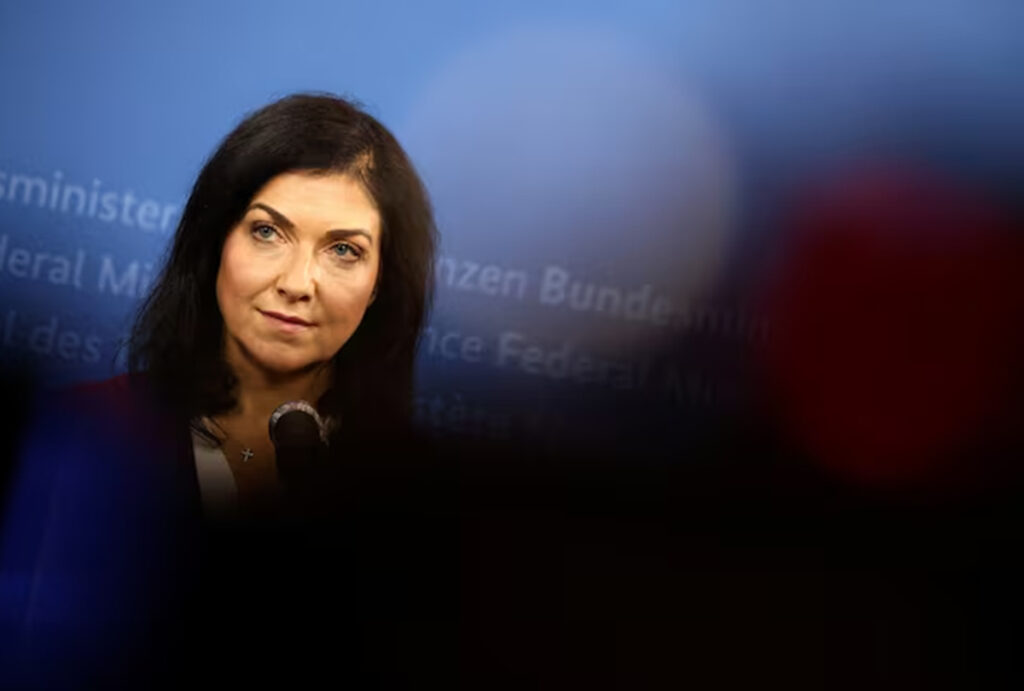
German Economy and Energy Minister Katherina Reiche attends a statement before “steel talks” in Berlin, Germany, October 1, 2025. REUTERS/Liesa Johannssen
BERLIN, Oct 6 (Reuters) – German Economy Minister Katherina Reiche on Monday unveiled a 6 billion euro ($7 billion) funding initiative aimed at industrial decarbonisation, incorporating carbon capture and storage (CCS) technology into the country’s climate protection contracts for the first time.
The program targets energy-intensive sectors such as chemicals, steel, cement and glass, as Germany navigates stringent climate targets amid concerns over industrial competitiveness. Companies have until December 1 to register projects for next year’s bidding process.
Bidding is set to launch mid-2026, contingent on parliamentary budget approval and EU state aid clearance.
The new round marks an expansion from last year’s program by including CCS technology, which traps CO2 emissions and stores them underground.
Under 15-year contracts, the government will subsidize costs for firms transitioning to cleaner production methods, shielding them from volatile energy and carbon prices.
Contracts will be awarded through competitive auctions, with projects requiring the lowest subsidy per tonne of CO2 saved taking precedence. In return, the subsidised companies will be required to meet binding emission reduction milestones.
Industry groups expressed support for the inclusion of CCS and the flexible approach, emphasizing the need for pragmatism in balancing climate goals with economic challenges, including high energy costs and faltering industrial performance.
($1 = 0.8579 euros)
Reporting by Holger Hansen, writing by Kirsti Knolle, Editing by Miranda Murray
Share This:




 CDN NEWS |
CDN NEWS |  US NEWS
US NEWS 
























